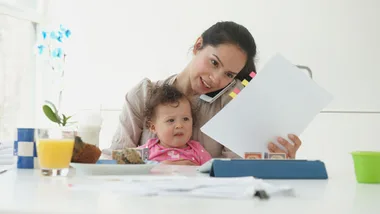ACCORDING to a University of Michigan survey that has been running since 1968, married men create an extra seven hours of housework per week for their wives while lessening their own domestic chores by an hour – and that’s without children!
An Australian lifestyle magazine supported these findings with an online survey of 738 women, half of whom reportedly dedicate more than eight hours per week to cleaning up after their families. Picking up after hubby and kids took 30 per cent of these women more than 12 hours per week, supporting the University of Michigan findings that getting married means more work and less personal time for the majority of women.
An Australian Family Association representative, Angela Conway, told the Herald Sun newspaper that husbands working long hours and teenagers stressed by homework and part-time jobs were the main reason behind the increase in housework for Aussie women. The University of Michigan study showed that while women, both married and single, are now doing far less housework than women in 1975 and that married men were in fact doing more – housework and domestic chores are still predominantly seen as the domain of women.
Conway told the Herald Sun that the federal government doesn’t acknowledge the huge workload of Australian women in running a household and keeping a family happy, adding that “married men are working more than 40 hours a week, time pressures are increasing, our social life is diminishing and we are less connected to our community and family than we have ever been.” Conway said these “are the major reasons mothers are picking up after everyone else. They have just got too much on.”
Recently, University of Queensland researchers found that the gap in housework between men and women has certainly changed since 1986, with men doing 6.5 more hours of housework per week in 2005 than they used to. Yet even with the “new traditional” roles of two parents working full time, women still do 5.5 hours more around the house than their partners.
Many women enjoy and take pride in the role of “domestic goddess”, but for a great many women, this domestic workload appears to be a necessity rather than a choice and families and the government may not be doing enough to ease the burden.


